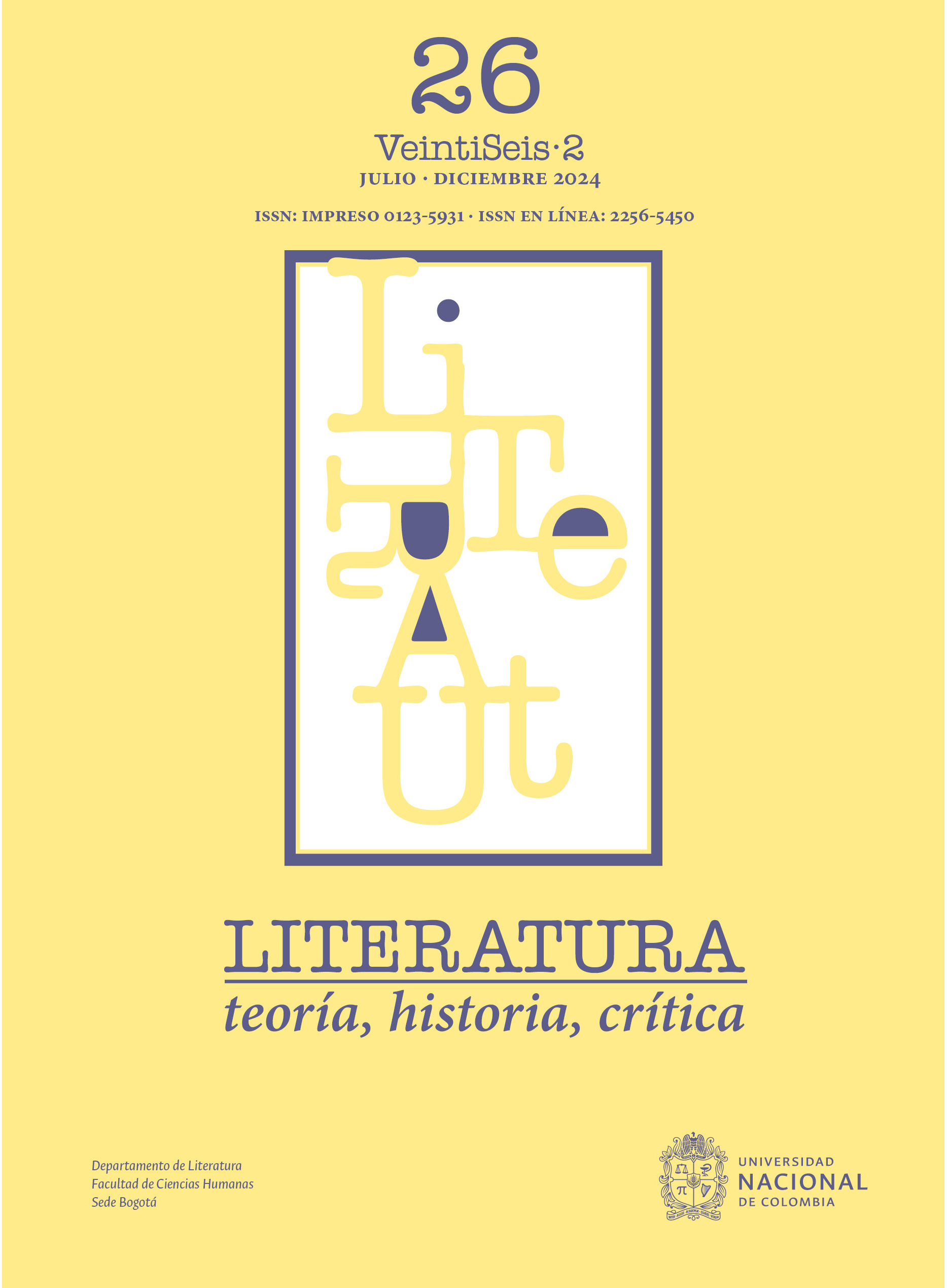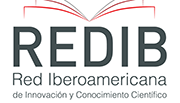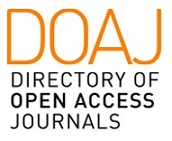Fighting Windmills: Quixotism and Old/New Issues Facing Humankind
Luchando contra los molinos de viento: el quijotismo y los viejos/nuevos problemas que enfrenta la humanidad
Lutando contra moinhos de vento: quixotismo e velhos/novos problemas enfrentados pela humanidade
DOI:
https://doi.org/10.15446/lthc.v26n2.113675Palabras clave:
conflict, reality, idealism, human, quixotic worldview (en)Conflicto, realidad, idealismo, humano, cosmovisión quijotesca (es)
Conflito, realidade, idealismo, humano, cosmovisão quixotesca (pt)
Descargas
The most recent reimagining of Miguel de Cervantes’s Don Quixote (1605) —Salman Rushdie’s Quichotte (2019)— represents the volatile identities in American society under the conditions of blurring a line between fact and fiction. Exploring quixotism as the conflict of idealism vs realism elucidates the idea of humans who fight with the windmills in their heads. Against the background of this conflict, topical concerns are vividly highlighted to remain constant throughout the centuries, considering specific historical and sociocultural circumstances. The impact of this binary opposition on the worldview of the people of that time and the modern ones, created by Cervantes and Rushdie correspondingly, is a primary focus of the article. Both novels share a symbolic reflection of the world through the distinct aesthetics of a work of fiction that moves them beyond metafictional narration. A comparative study of the diachronically different stories emphasises a similarity of the strong questions raised about the societies whose ideals quixotes reflect.
La reinvención más reciente del Don Quijote (1605) de Miguel de Cervantes —Quichotte (2019) de Salman Rushdie— representa las identidades volátiles de la sociedad estadounidense en condiciones de difuminar la línea entre realidad y ficción. Explorar el quijotismo como el conflicto entre idealismo y realismo aclara la idea de los humanos que luchan contra molinos de viento en sus cabezas. En este contexto, se destacan preocupaciones constantes a lo largo de los siglos, considerando circunstancias históricas y socioculturales. El presente artículo se enfoca en dicha oposición binaria existente en las cosmovisiones de la gente de las épocas de Cervantes y de Rushdie. Ambas novelas comparten un reflejo simbólico del mundo, mediante la estética distintiva de una obra de ficción que trasciende la narración metaficcional. Un estudio comparativo de las historias diacrónicamente diferentes enfatiza la similitud entre las fuertes preguntas planteadas sobre las sociedades cuyos ideales reflejan los Quijotes.
A mais recente reimaginação de Dom Quixote (1605) de Miguel de Cervantes —Quichotte (2019) de Salman Rushdie— representa as identidades voláteis na sociedade americana sob as condições de confundir a linha entre fato e ficção. Explorar o quixotismo como o conflito entre idealismo e realismo elucida a ideia de humanos que lutam com moinhos de vento em suas cabeças. No contexto deste conflito, preocupações são vividamente destacadas ao longo dos séculos, tendo em conta certas circunstâncias históricas e socioculturais. O presente artigo foca na oposição binária existente nas visões de mundo das épocas de Cervantes e Rushdie. Ambos os romances compartilham uma reflexão simbólica do mundo, através da estética distinta de uma obra de ficção que transcende a narração metaficcional. Um estudo comparativo das histórias diacronicamente diferentes enfatiza a semelhança das fortes questões levantadas sobre as sociedades cujos ideais os quixotes refletem.
Referencias
Bezrukov, Andrii and Oksana Bohovyk. “On the Verge of Moral and Spiritual Collapse: Challenges of a Post-truth World and Hyperreality in Salman Rushdie’s Quichotte.ˮ Forum for World Literature Studies, vol. 14, no. 2, 2022, pages 204-26.
Boutcher, Warren. “Transnational Cervantes: Text, Performance, and Transmission in the World of Don Quixote.ˮ Seventeenth-Century Fiction: Text and Transmission, edited by Jacqueline Glomski and Isabelle Moreau, Oxford University Press, 2016, pages 99-114. DOI: https://doi.org/10.1093/acprof:oso/9780198737261.003.0007.
Britt-Arredondo, Christopher. Quixotism: The Imaginative Denial of Spain’s Loss of Empire. New York, State University of New York Press, 2004.
Cascardi, Anthony J. “Don Quixote and the Invention of the Novel.ˮ The Cambridge Companion to Cervantes. Cambridge, Cambridge University Press, 2002, pages 58-79. DOI: https://doi.org/10.1017/CCOL0521663210.004.
Cascardi, Anthony J. The Subject of Modernity. Cambridge, Cambridge University Press, 1992. DOI: https://doi.org/10.1017/CBO9780511597428
Cervantes, Miguel de. Don Quixote. Translated by Edith Grossman, New York, Ecco, 2003.
Childers, William. Transnational Cervantes. Toronto, University of Toronto Press, 2006.
Dʼhaen, Theo and Reindert Dhondt. International Don Quixote. Leiden, The Netherlands, Brill, 2009. DOI: https://doi.org/10.1163/9789042029187.
Durán, Manuel and Fay R. Rogg. Fighting Windmills: Encounters with Don Quixote. New Haven, CT, Yale University Press, 2006. DOI: https://doi.org/10.12987/yale/9780300110227.001.0001
Egginton, William. The Man Who Invented Fiction: How Cervantes Ushered in the Modern World. New York, Bloomsbury, 2016. DOI: https://doi.org/10.1111/heyj.12328_4.
Girard, René. “Generative Scapegoating.ˮ Violent Origins: Walter Burkert, René Girard, and Jonathan Z. Smith on Ritual Killing and Cultural Formation, edited by Robert G. Hamerton-Kelly, Redwood City, Stanford University Press, 1987, pages 73-105. DOI: https://doi.org/10.1515/9780804766265-004.
Gordon, Scott Paul. The Practice of Quixotism: Postmodern Theory and Eighteenth-Century Women’s Writing. New York, Palgrave Macmillan, 2006. DOI: https://doi.org/10.1057/9780230601536.
Hammond, Brean S. “Mid-Century English Quixotism and the Defence of the Novel.” Eighteenth-Century Fiction, vol. 10, no. 3, 1998, pages 247-68. DOI: https://doi.org/10.1353/ecf.1998.0023
Hanlon, Aaron R. A World of Disorderly Notions: Quixote and the Logic of Exceptionalism. Charlottesville, University of Virginia Press, 2019. DOI: https://doi.org/10.2307/j.ctvfc5690
Hanlon, Aaron R. “Toward a Counter-Poetics of Quixotism.” Studies in the Novel, vol. 46, no. 2, 2014, pages 141-58. DOI: https://doi.org/10.1353/sdn.2014.0044.
Imhof, Rüdiger. Contemporary Metafiction – A Poetological Study of Metafiction in English since 1939. Heidelberg, Carl Winter Universitätsverlag, 1986.
Johnson, Carroll B. Don Quixote: The Quest for Modern Fiction. Long Grove, Ill., Waveland Press, Inc., 2000.
Lepenies, Wolf. Between Literature and Science: The Rise of Sociology. Cambridge, Cambridge University Press, 1988.
Long, Christopher R., et al. “Solitude Experiences: Varieties, Settings, and Individual Differences.” Personality and Social Psychology Bulletin, vol. 29, no. 5, 2003, pages 578-83. DOI: https://doi.org/10.1177/0146167203029005003.
Majumder, Atri and Gyanabati Khuraijam. “Salman Rushdie’s Quichotte and the Post-Truth Condition.” Rupkatha Journal on Interdisciplinary Studies in Humanities, vol. 12, no. 5, 2020, pages 1-9. DOI: https://dx.doi.org/10.21659/rupkatha.v12n5.rioc1s2n3.
Martinez-Bonati, Felix. Don Quixote and the Poetics of the Novel. Trans. Dian Fox. Ithaca and London, Cornell University Press, 1992. DOI: https://doi.org/10.7591/9781501745294
McCrory, Donald. No Ordinary Man: The Life and Times of Miguel de Cervantes. Mineola, New York, Dover Publications, 2006.
Otten, Marte, et al. “No Laughing Matter: How the Presence of Laughing Witnesses Changes the Perception of Insults.ˮ Social Neuroscience, vol. 12, no. 2, 2017, pages 182-93. DOI: https://doi.org/10.1080/17470919.2016.1162194.
Paulson, Ronald. Don Quixote in England: The Aesthetics of Laughter. Baltimore and London, Johns Hopkins University Press, 1998.
Pérez-Álvarez, Marino. “The Psychology of Don Quixote.ˮ Psychology in Spain, vol. 10, no. 1, 2006, pages 17-27.
Quint, David. Cervantes’s Novel of Modern Times: A New Reading of Don Quijote. Princeton and Oxford, Princeton University Press, 2003. DOI: https://doi.org/10.1515/9780691186467
Rushdie, Salman. Quichotte. New York, Random House, 2019.
Saoudi, Bechir, et al. “The Ideal and the Real in Cervantesʼs Don Quixote: A Hegelian Dialectic Approach.ˮ Arab World English Journal for Translation & Literary Studies, vol. 6, no. 2, 2022, pages 144-64. DOI: https://dx.doi.org/10.2139/ssrn.4131874.
Shikha, Mala. “Multivalence and Relevance of the Myth of Don Quixote.” Scholars International Journal of Linguistics and Literature, vol. 5, no. 1, 2022, pages 32-7. DOI: https://doi.org/10.36348/sijll.2022.v05i01.004
Shuger, Dale. Don Quixote in the Archives: Madness and Literature in Early Modern Spain. Edinburgh, Edinburgh University Press, 2012. DOI: https://doi.org/10.1515/9780748644643
Smith, Kimberley J. and Christina Victor. “Typologies of Loneliness, Living Alone and Social Isolation, and Their Associations with Physical and Mental Health.” Ageing and Society, vol. 39, no. 8, 2018, pages 1709-30. DOI: http://dx.doi.org/10.1017/S0144686X18000132.
Watt, Ian. Myths of Modern Individualism: Faust, Don Quixote, Don Juan, Robinson Crusoe. Cambridge, Melbourne, Cambridge University Press, 1996. DOI: https://doi.org/10.1017/CBO9780511549236
Cómo citar
APA
ACM
ACS
ABNT
Chicago
Harvard
IEEE
MLA
Turabian
Vancouver
Descargar cita
CrossRef Cited-by
1. Andrii Bezrukov. (2025). Transtextuality within (post)modernist literary narratives: subtypes of textual transcendence. Synopsis Text Context Media, https://doi.org/10.28925/2311-259x.2025.3.3.
Dimensions
PlumX
Visitas a la página del resumen del artículo
Descargas
Licencia

Esta obra está bajo una licencia internacional Creative Commons Atribución-NoComercial-SinDerivadas 4.0.
La revista Literatura: teoría, historia, crítica, de acuerdo con su naturaleza académica, una vez los autores han cedido los derechos sobre sus trabajos, publica los contenidos de sus ediciones en formato digital, en acceso abierto a través de una licencia de Creative Commons 4.0 de “Atribución, No comercial, Sin derivar” (BY-NC-ND). Sugerimos a los autores enlazar los trabajos publicados en la revista a nuestro sitio web desde páginas web personales o desde repositorios institucionales.
También, como autores o coautores, deben declarar ante la revista que ellos son los titulares de los derechos de su trabajo y que no tienen impedimento para realizar su cesión. Asimismo, los autores ceden todos los derechos patrimoniales (de reproducción, comunicación pública, distribución, divulgación, transformación, puesta a disposición y demás formas de utilización, por cualquier medio o procedimiento), por el término de la protección legal de la obra y en todos los países, a la revista Literatura: teoría, historia, crítica, de la Facultad de Ciencias Humanas de la Universidad Nacional de Colombia (sede Bogotá).



























